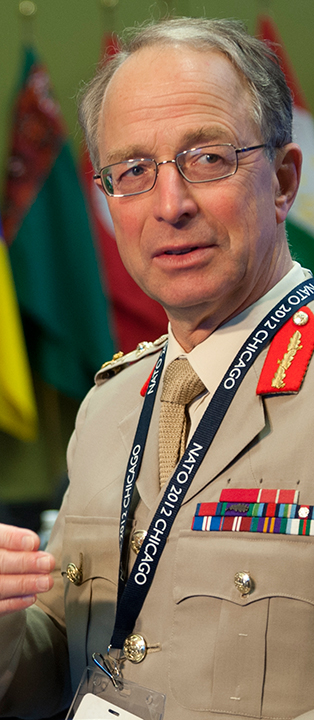
In January 1999 I led a small team of officers and marines to Sierra Leone. Our task was to assess whether the once proud little army of that tragic but spirited country had any hope of pushing back the brutal rebels of the Revolutionary United Front. I had to assess whether there was anything we could do to help them and present the case to Tony Blair’s government in London.
The RUF’s signature atrocity was the amputation of the limbs of young and old alike. Designed to intimidate the population, in their warped often drug-crazed minds this also had the advantage of preventing those they ‘cut’ from casting a vote in any future elections. We watched the Sierra Leonian army, their local kamajor militia allies and a small contingent of Nigerian troops fight valiantly to push the RUF back out of Freetown. We departed after about 10 days but not before we had successfully persuaded the British government that these plucky people should be helped, financially and militarily.
That experience left a real mark on me and my team. We had been witness to some horrific sights, things we all hoped never to see again. We certainly never thought we would return to Sierra Leone. Little did we know.
By early May 2000, the RUF had reneged on a peace treaty they had signed the previous summer and were once again rampaging their brutal way towards Freetown. This time my ever-ready Joint Force HQ, with 1st Battalion Parachute Regiment group including the Regiment’s renowned Pathfinder Platoon and some others under command, were rushed out to Sierra Leone to evacuate British and other entitled people from the country for fear that they would be butchered by the RUF. It was a race against time. And it was vital that the RUF suffered an early blow to their morale, something that would make them pause and think twice about taking on my limited forces.
This invigorating book tells the tale of the hugely professional and courageous group of men who inflicted that blow on the RUF for me and their inspirational commanding officer Lt Col Paul Gibson. Deliberately exposed to lure the RUF onto their positions, the Pathfinders lived up to their unrivalled reputation for toughness and professionalism of the highest order. Without a shadow of doubt, their heroic actions that memorable night was the key tactical event in what has been held up as a model intervention operation. It enabled us not only to complete the evacuation in relative security but, more importantly, allowed us to push the RUF out of Freetown and away from the vital airfield without which no operation was tenable. It buoyed up the Sierra Leonian people and crucially bought time for the United Nations forces to recover and rebuild.
Six weeks later, with the RUF essentially defeated and hugely demoralised, we were able to hand over to the UN and wend our way back to the UK. We felt good about ourselves. We had chanced our arm and more than achieved the aim. The generous hearted people of Sierra Leone had been given their country back and could once again hope for a better future. The Pathfinders had written another stirring chapter in their short but illustrious history and Sergeant Steve Heaney was at the very centre of that story. To great acclaim he was rightly awarded the Military Cross; none can have been better earned.
Steve Heaney captures the confusion, black humour, raw courage, jargon and sheer exhilaration of combat brilliantly in this compelling and simply written book. In my judgement it is the best account of low level tactical soldiering since Fred Majdalaney’s classic ‘Patrol’, a World War 2 account of a fighting patrol. But Sergeant Heaney tells a broader tale that has also rarely been captured so well. What makes an elite unit like the Pathfinders so powerful, so special? One that commanders like me loved to have under them. One that their enemies fervently wished was not opposite them. What sort of people join such a unit? What binds them together so closely that they can stay cohesive under the most stressful of conditions? What training do they go through to reach such heights of professionalism? What is the role of humour in keeping morale high when most would succumb to fear and fatigue? This classic book reveals all this and much more. I commend it to the professional soldier and layman alike.
It was people like Sergeant Heaney MC that I was thinking of when I said at my retirement parade on Horse Guards in London “if I have seen further than most, it was because I stood on the shoulders of giants”. If you don’t know what I mean, read this book and you soon will.
Image Source – Flickr
